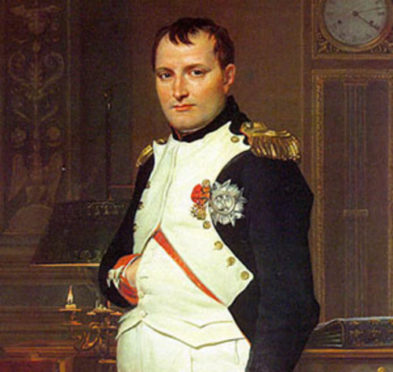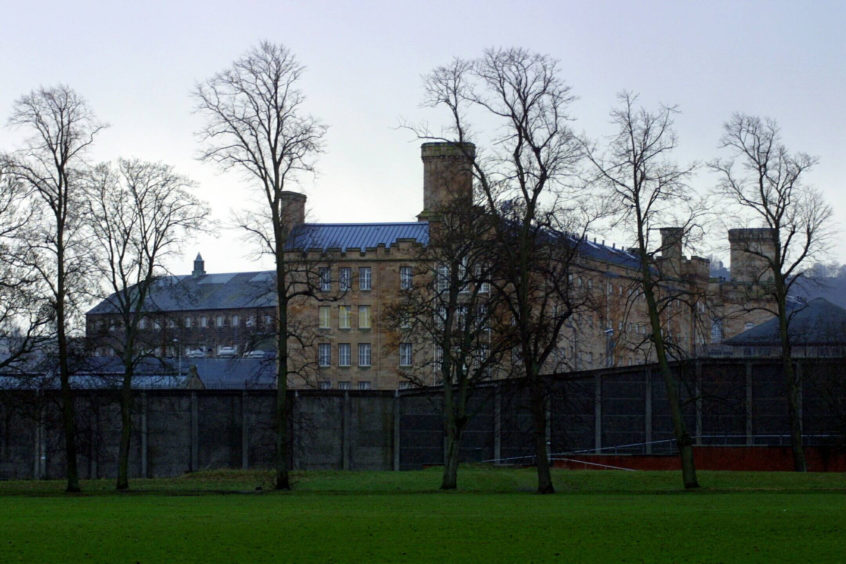The looming 200th anniversary of Napoleon Bonaparte’s death has led to calls for more recognition of the French military leader’s impact on Scotland’s “home front”.
Scottish regiments such as the Black Watch and Gordon Highlanders played a pivotal role in the Napoleonic wars and in the ultimate defeat of the man whose imperial ambitions led to his coronation as Emperor in 1804.
As the French forces swept across Europe and beyond, battles on land and sea resulted in a rapid growth in the number of prisoners of war, captured enemy vessels and privateers, all of which became an issue for the British government.
In Scotland, Edinburgh Castle was one of a number of locations used to hold prisoners, while a formidable, purpose built jail in Perth was completed in 1812.
There, prisoners made items from bone, straw and wood which were sold to local people.
Scottish ports including Arbroath, Aberdeen, Dundee and Peterhead also played host to a number of captured enemy vessels.
Prisoners north of the border appear to have received better treatment than their counterparts in England but some still sought to escape. Plans were hatched, including tunnel-delving and an elaborate scheme involving hot air balloons.
In 1813, a number of French prisoners who had escaped from Perth got to within a mile of Arbroath before being recaptured, while another, who appeared to have broken free from a number of prisons with Houdini like tenacity, eventually ended up in Montrose.
He fled again, after unscrewing the locks of three doors, having been given tools by a local woman.
Ahead of the 200th anniversary of Napoleon’s death in 2021, Mid Scotland and Fife Conservative MSP Murdo Fraser is calling for greater awareness of the area’s role in the Napoleonic era.
He said: “Bonaparte continues to fascinate many, but too often the focus is on the high-level international events and battles.
“I think we have an opportunity to examine the impact of the war at home and how people interacted with the prisoners of war.
“It’s an area of history we should not lose sight of.”
Around 7,000 French Napoleonic prisoners of war were held at Perth Prison between 1810 and 1812.
Records state that French officers were often “paroled” into the city and would stay with local families.”
All of the French prisoners were repatriated after the Battle of Waterloo in 1815 and thousands of Perth people turned out to wave them off.
Not all the prisoners wanted to go home
Not every prisoner of war returned home at the cessation of hostilities.
Perhaps the most well known was Jules Legendre, a Lieutenant in Boneparte’s elite Imperial Guard, which had been renamed from the Consular Guard in 1804 and was headquartered in Paris.
Captured around 1812, Legendre was held in Perth prison, but opted to remain in Scotland on his release.
He married Dunkeld woman Jane Inches and the couple had three children, two girls and a boy, although their son, William Cleviller died in infancy.
Jules settled into his new life in Scotland, and taught modern languages in what is now Dundee High School.
He died in September 1840, and was interred in Dundee’s Howff cemetery.
His original gravestone was replaced with a new one by his two daughters, Therese and Caroline, in 1891. The fine monument, bordered by an iron railing can still be seen today.
A poem was later composed in honour of the French Lieutenant.
“Here in the very heart of old Dundee
Rest his remains within an alien soil.
He fought for country, yet he found a place
Far from his native Chartres for peaceful toil.
When friends from Orleans pass with hurrying feet.
Catching a glimpse of daffodils abloom,
May they have eyes – though but a fleeting glance-
For this brave piece of France – the cross-crowned tomb.”
Legendre’s widow Jane died in Glasgow in December 1848.
As part of the 450th anniversary commemorations of the Howff cemetery in 2014, a wreath was laid at his tomb to commemorate the brave Frenchman who made Scotland his home.











